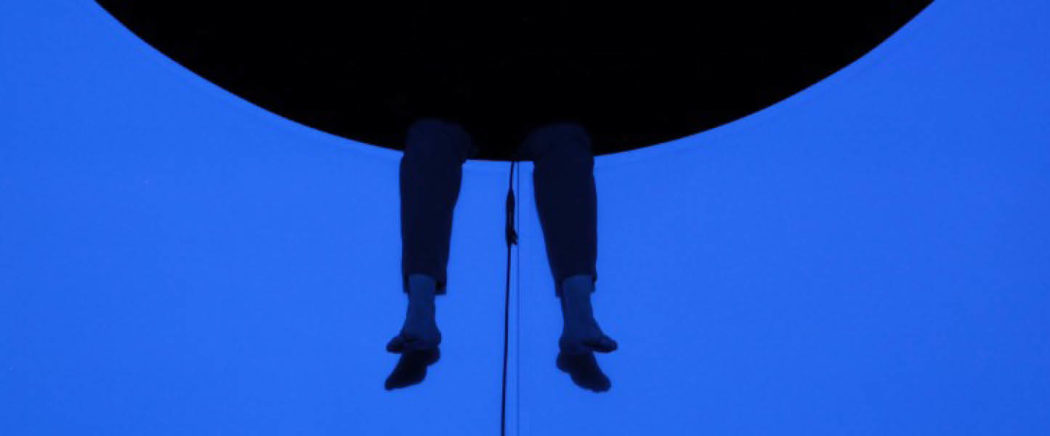For me, it wasn’t until “Pore Jud is Daid” that Daniel Fish’s Broadway revival of Oklahoma! proved it was exactly as revelatory as everyone said it was. The scene begins in a blackout that seems to go on and on as our anxiety mounts – and then suddenly the upstage wall of the set is illuminated in austere grayscale. It’s a live video of Patrick Vaill (playing a tormented Jud Fry) in extreme close-up as Damon Daunno’s Curly McLain sings inches from his face, goading him into hanging himself. As the camera moves around the two men, the scenic backdrop painted on the upstage wall – fields, two lonely houses, open sky – swims across Vaill’s face. The landscape darkens; there’s weather. Jud’s pain comes sweepin’ down the plain.
Jack Gladney, the Hitler Studies professor at the heart of Don DeLillo’s novel White Noise, provides the key to this aesthetic. “The world is full of abandoned meanings,” he says. “In the commonplace I find unexpected themes and intensities.” Even critics hostile to Fish’s Oklahoma! acknowledge that he discerned dark currents of uncertainty and violence beneath the placid surface of the text. Rather than revealing themselves in a flash, these unexpected intensities accumulate, building slowly like storm clouds on the horizon, casting deepening shadows.
How appropriate, then, that Fish has also chosen to adapt White Noise for the stage. Jack Gladney again: “Weather was very much the point, although I didn’t know it at first.” DeLillo’s characters don’t so much forge a path through life as they are bombarded by it. They are endlessly exposed — to the TV, the radio, the tabloids, product displays in the supermarket, drugs they may or may not have taken, the strange behavior of lovers and children, the inscrutability of everyday conversation, an all-consuming fear of death. Then of course there is the Airborne Toxic Event, a plume of supposedly deadly chemicals that moves like a hurricane through the novel, post-industrial anxiety eddying in its wake.
Reading the weather report is one thing; standing outside in the rain is another. In his stage adaptation, Fish has cast us as Jack Gladney’s fellow evacuees, exposed as he has been to the toxicity of our political, technological and ecological present. “I watched the audience,” Gladney says, surveying a room of people made temporarily homeless by the Airborne Toxic Event. “Look at us, I thought. Forced out of our homes, sent streaming into the bitter night, pursued by a toxic cloud, crammed together in makeshift quarters, ambiguously death-sentenced.” The performance washes over us, crammed together here in the makeshift quarters of the theatre. Even the text itself, in Bruce Mackenzie’s astonishing delivery, is a kind of weather. Where can we take shelter?
Joshua Williams is an Assistant Professor Faculty Fellow in the Department of Drama at NYU Tisch. His research focuses on questions of race and animality in African performance. He is currently translating the complete plays of the Tanzanian dramatist Ebrahim Hussein from Swahili into English for Oxford University Press, and his own plays have been developed and produced at, among others, Princeton University, the University at Buffalo, Capital Fringe, NYMF, Ars Nova’s ANT Fest and EST/Sloan.
